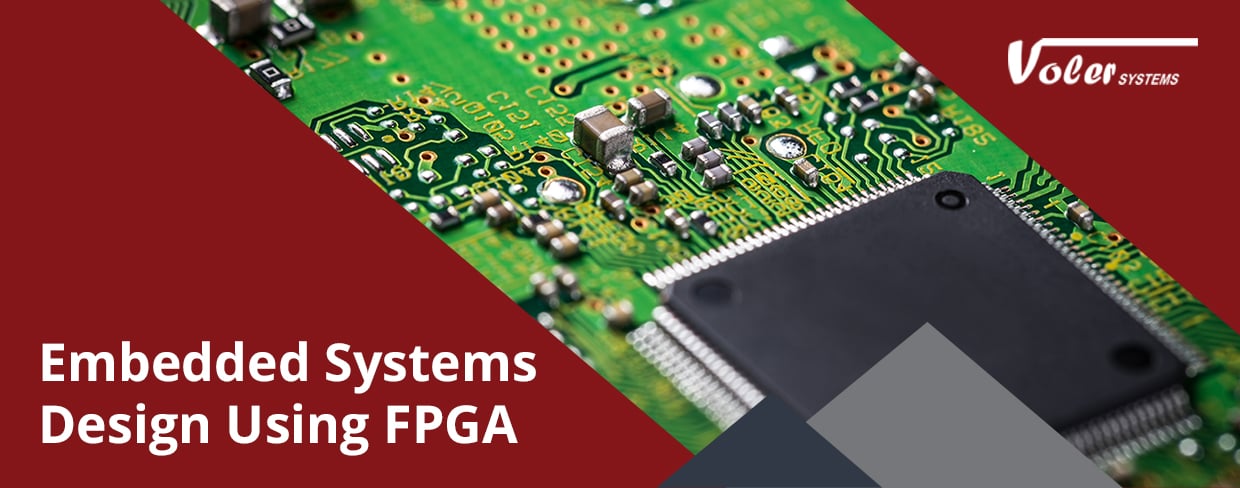The healthcare sector is undergoing a
significant changeover. Focusing on early diagnosis, accessible patient
data, and productivity gains, the healthcare industry is looking for
innovative solutions. One such solution includes Field-Programmable Gate
Arrays (FPGAs). FPGAs are poised to play a significant role in the next
decade of medical advancements, according to Intel.
Defining FPGAs -
Imagine an integrated circuit (IC) that can be customized on the fly. That's the essence of an FPGA design.
However, the traditional Application-Specific Integrated Circuits
(ASICs) are designed for a single task. However, FPGAs consist of
configurable logic blocks that can be reprogrammed to perform different
functions. You can think of them as versatile building blocks for
electronic devices, providing faster execution than software running on a
processor.
Understanding the Difference between FPGAs and ASICs
ASICs
power laptops, smart phones, and TVs. They excel at specific tasks but
don’t have the flexibility of FPGAs. On the other hand, FPGAs are ideal
for low-volume applications because of their adaptability. That’s why
they are perfect for specialized medical equipment, aerospace, and
military applications where performance and customization are essential.
The Power of FPGA Design in Medical Devices
The rapid growth of FPGA design has opened doors for exciting possibilities in the healthcare sector. Take a glimpse into how these chips are transforming the entire medical landscape:
- Early Diagnosis— - FPGAs can be programmed to analyze complex medical data in real time to provide early detection of diseases such as cancer and heart conditions.
- Digitized Patient Information - FPGAs can create a more interconnected healthcare system. They facilitate secure access to patient data from different locations to streamline diagnosis and treatment.
- Total Solution Selling - FPGAs empower the development of comprehensive medical equipment solutions. Imagine using an all-in-one device for diagnostics, monitoring, and even treatment – FPGAs can be the engine that can drive such technological advancements.
The FPGA Advantage for Product Designers and Manufacturers
FPGAs provide a compelling value proposition for those manufacturing medical devices and other products. Here’s why:
- Flexibility - Unlike ASICs, FPGA design allows for modifications even after production. This agility allows for faster updates and improvements to medical devices.
- Affordability - FPGA can be an affordable solution compared to custom-designed ASICs for low and moderate-volume applications.
- Long Life Cycle – FPGAs provides a much longer life cycle than traditional electronics, which makes them ideal for medical devices with extended use periods.
Working with a Partnering for FPGA Design and Development
Using FPGA in medical device design and development requires specialized expertise. A trustworthy company, such as Voler Systems, offers FPGA design and development services, helping businesses develop and manufacture cutting-edge medical equipment. Voler’s expertise covers many aspects, including:
- FPGA-based Electronic Product Development - Voler Systems helps create medical devices using FPGAs, providing optimal performance and functionality.
- Image and Video Processing- FPGAs are ideal for analyzing complex images and video, essential for medical diagnostics and research. Voler Systems can design FPGA-powered solutions to perform these tasks efficiently.
- High-Speed Memory Interfaces - Medical devices often need high-speed data transfer. Voler's expertise in FPGA design ensures efficient memory management.
- System Integration - Voler Systems helps bridges the gap between different components within a medical device, effectively integrating FPGAs for maximum performance.
- Coding
and Design Optimization - Voler Systems uses industry-standard tools,
such as VHDL and Verilog, to program and optimize FPGA designs for
medical applications.
FPGAs Help Create a Brighter Future for Healthcare
The future of healthcare is bright, and FPGAs can be a driving force. With unmatched flexibility, cost-effectiveness, and long life cycles, FPGAs empower product designers and manufacturers to create innovative and highly- advanced medical devices. Working with experienced FPGA design and development service providers like Voler Systems can help businesses navigate this exciting healthcare technology.

Comments
Post a Comment